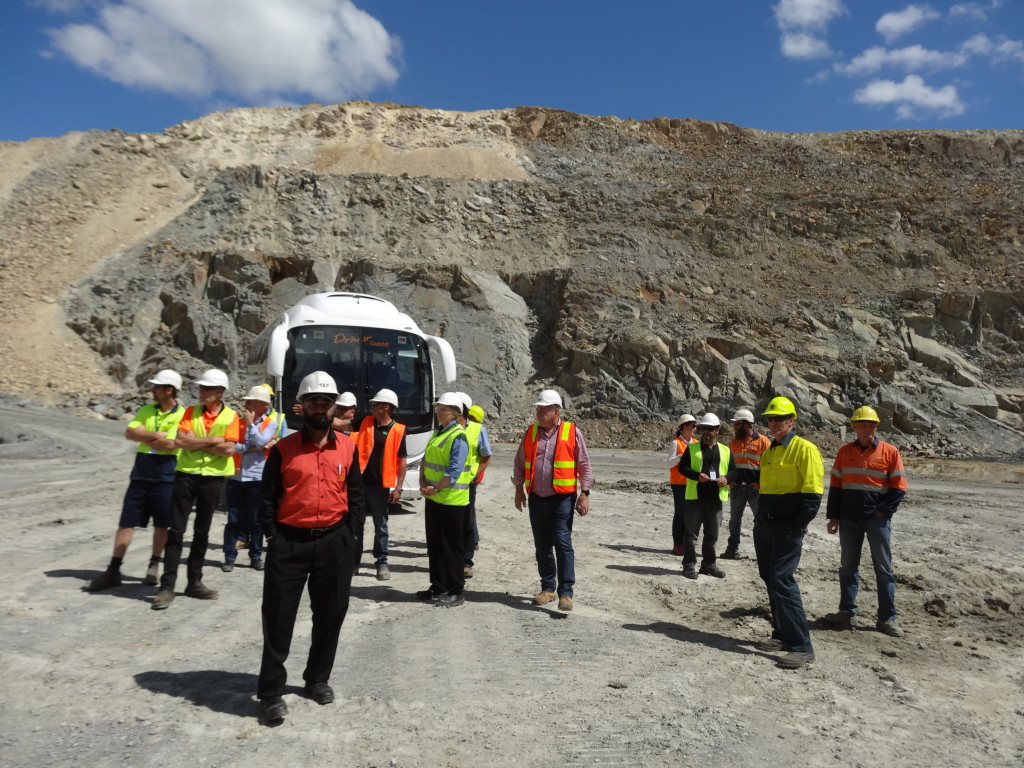Progressive Rehabilitation Workshop
CMPA Secretariat reports on the successful day recently held in the South East of Melbourne for CMPA members.
On 23 February 2017 the CMPA held a workshop on Progressive Rehabilitation Management. The purpose of the workshop was to develop an extractive industry guideline template and to provide participants with appropriate management practices required to progressively rehabilitate a quarry (where practicable).
It will assist members in establishing and maintaining a Work Plan which defines operational activity so as to obtain and sustain an Extractive Industry Work Authority. Additionally, it is also a mechanism that may be used to keep rehabilitation bonds manageable, minimise your liability, ensure your environmental liabilities are met and be able to present a site for the community in the long term.
The day commenced at the Best Western Frankston International with about 35 CMPA members in attendance including representatives from Earth Resources Regulations and consultants from BCA Consulting, Biosis and Nolan Consulting making presentations.
The Regulator’s expectations was presented by Ross McGowan – Executive Director, Earth Resources Regulation (ERR). “In the last two decades or so, of the benefits of undertaking progressive rehabilitation, planning for and undertaking rehabilitation early and how this can contribute to the company’s environmental and community values, towards sustainable land use. A proactive response in the industry has seen a desire to ‘do things better’ and retain and protect a social licence to operate, particularly relevant to those of us with operations here in Victoria in close proximity to our local communities.” Ross McGowan said that where there was evidence of progressive rehabilitation (where practicable), this would be reflected in the level of rehabilitation bond and he would relay that to his Inspectors.
Beiha-Malen Yanez – Environmental Scientist, Earth Resources Regulation spoke about rehabilitation and closure guidelines being prepared by ERR that will be specific to quarries.
CMPA Member Cameron Black, BCA Consulting provided information on the favourable forces (cost effective, reduces rehabilitation bond, planning, good housekeeping, community expectations, vegetation) and unfavourable forces of Progressive Rehabilitation (timing, to establishing terminal faces; plant location; site topography; resource variability; suitable material; market demands; potential future extensions; development plan; revegetation).
John Nolan, Nolan Consulting presented on the topic of understanding groundwater and surface water management. He suggested measures for progressive rehabilitation: operate in stages; separate stages (if the floor is below ground level or within flood plan); separate completed stages from operational stage with internal bunding (natural or constructed). Benefits: reduced risk of operational slope failure; reduced water usage; allows for effective management of flooding and groundwater impacts.
Steve Mueck, Senior Consultant Biologist, Biosis presented on Vegetation Management. He spoke about the process of approval, planning and preparation: clear achievable objectives and goals from approval to exit; every site is different so start small, revegetation works can be expensive – some trial and error may be required to get it right; site preparation – stored soil, mulch, weed matting, brush matting; secure source of plants (lag time for collection and growing); and monitoring and reporting progress.
A workers lunch brought opportunities to network with fellow members and to discuss what had been learned during the morning’s presentations.
After lunch CMPA Members from three different quarries around Victoria (Brad Carr, Allstone Quarries, Andrew Evans, Local Mix Quarries and Paul Williamson and David Maltby, SBI Cranbourne Quarries) spoke about different Rehabilitation examples from their organisations.
Paul Williamson, Quarry Manager for SBI Cranbourne Quarries provided a brief insight into the development and workings of the hard rock site before members got on the bus to view the site for themselves. A good way to finish the day looking at a site that over time will transform to a land fill and then parkland for the local community.
Expectations were met with participants gaining a further understanding of how to go about rehabilitation.
“Scope and quality of presentations, supplemented by practical site examples.”
“I now have a broader understanding of the regulatory requirements and a better understanding about changes in soil structures.”
“We are looking to establish a Rehabilitation Plan which made the workshop and the information very relevant.”
The next stage is to develop a progressive rehabilitation management plan template consistent with the Rehabilitation and Closure Guidelines for Quarries being developed by ERR with an estimated date of November 2017 (dependent on ERR).
Thanks to all who helped make the day such a success especially the presenters from Earth Resources Regulation, BCA Consulting, Biosis, Nolan Consulting, Allstone Quarries and Local Mix Quarries.
Lastly to SBI Cranbourne Quarries for their presentation and for allowing us to visit their quarry.











You must be logged in to post a comment Login